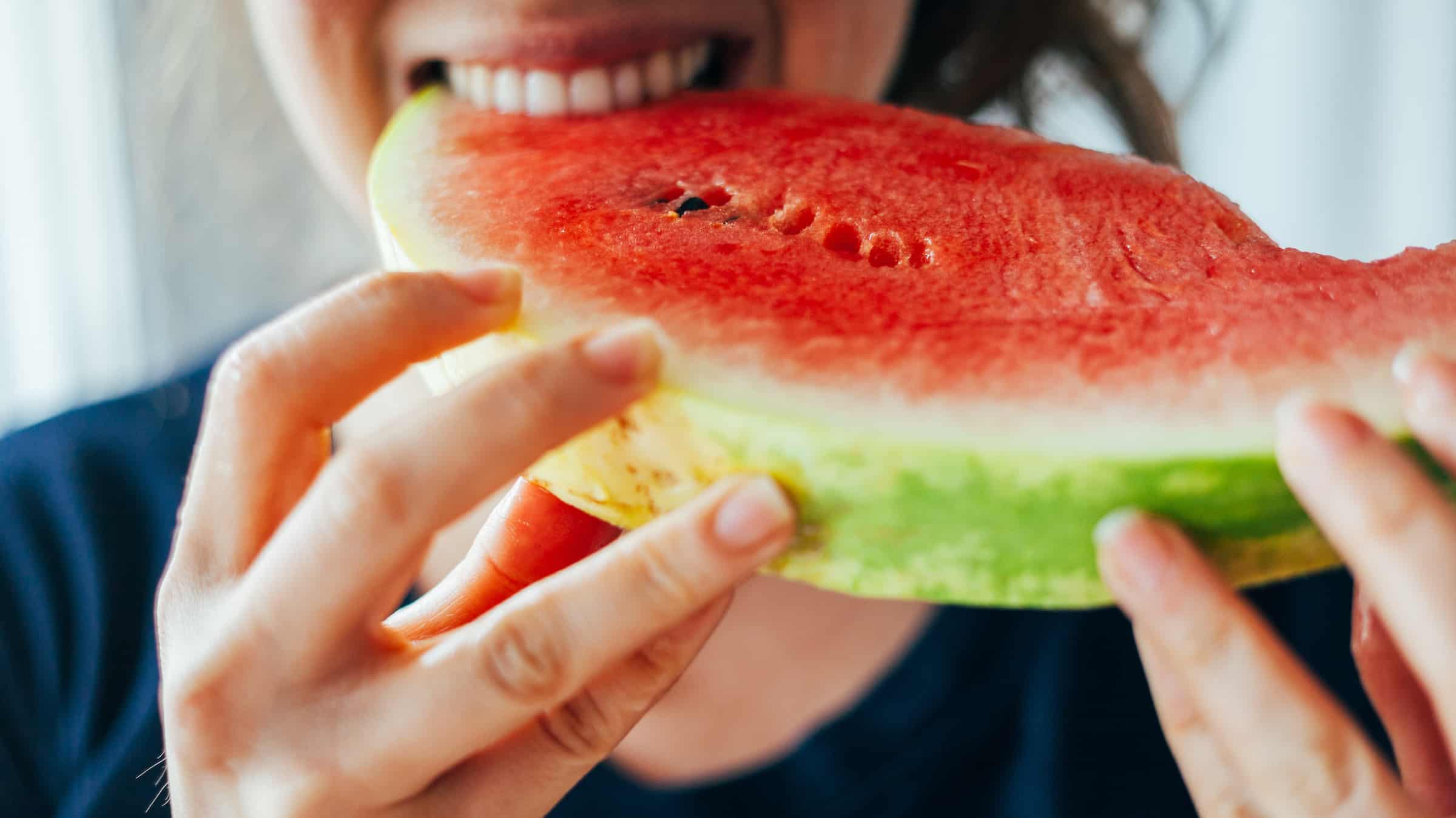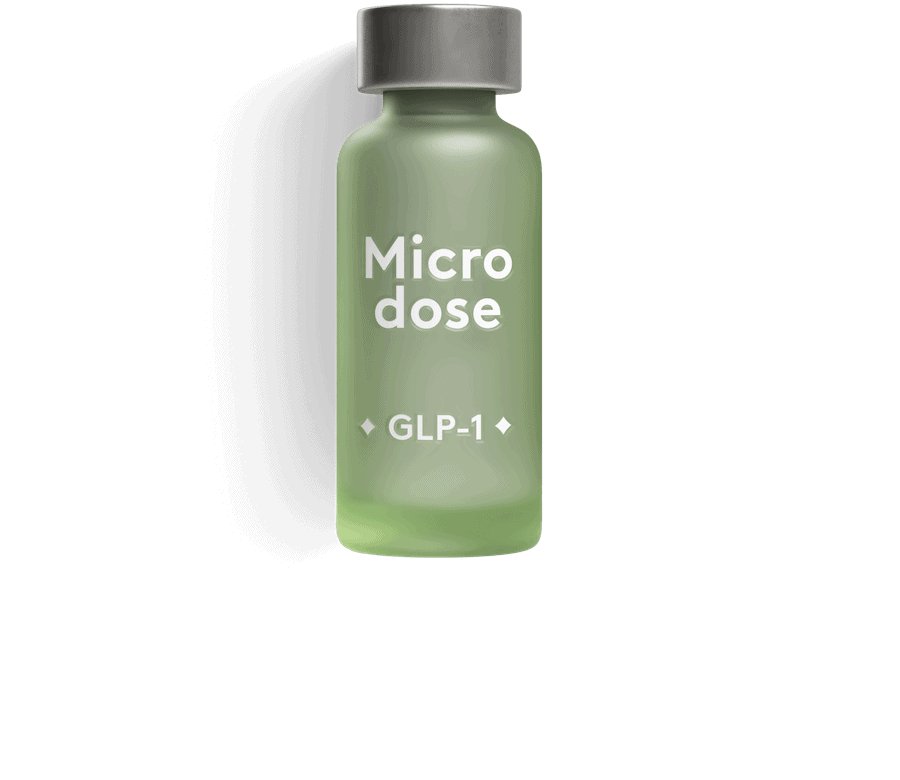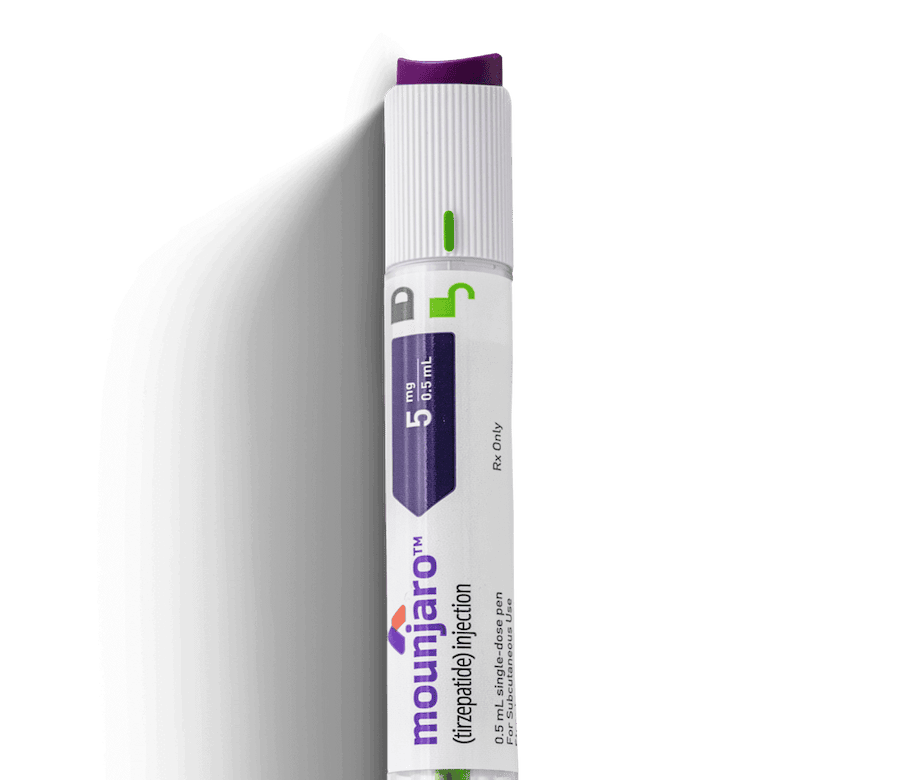- Consisting of 92% water, watermelon is one of the best fruits you can eat if you want to lose weight.
- Watermelon is packed with nutrients that keep your body’s systems functioning properly.
- However, eating only watermelon (the so-called “watermelon diet”) isn’t a healthy or sustainable approach to weight loss.
You may have heard of the “watermelon diet,” where you eat only watermelon for several days in a row to “cleanse” or lose weight. It was popularized by stars like Gabi Butler of the reality TV show Cheer.
Where does the idea of a watermelon diet come from? It’s true that eating watermelon as part of a balanced diet can help you lose weight, but some have taken it to an extreme. Eating nothing but watermelon is unhealthy.
Read on to learn about the benefits of eating watermelon and how it fits into a sustainable weight loss plan.
Why watermelon is great for weight loss
Watermelon’s name offers a clue as to how it can help with weight loss: it’s mostly water. 92% water in fact.
But what does that have to do with losing weight?
The more water a food contains, the lower its caloric density—the number of calories in a specific weight of food. For example:
Raisins are just dried grapes. Both are the same fruit, but grapes have a lower caloric density because they contain more water than raisins.
When you eat low-caloric density foods, you end up eating fewer calories for the same weight (and often volume) of food.
An eating style focused on low-caloric density foods helps you maintain a calorie deficit—a key part of losing weight.
And a 100 gram serving of watermelon contains just 30 calories.
Noom Weight encourages people to eat healthier through a color system that categorizes foods by their calorie density.
- Green foods have the lowest caloric density (like grapes).
- Yellow foods have a slightly higher caloric density, but are also full of nutrients your body needs to function (like chicken breast).
- Orange foods have the highest caloric density (things like ice cream, but also some foods that are nutrient-rich, like walnuts, which should be enjoyed in moderation).
This color system helps Noomers identify nutritious and low-caloric density foods to help them lose weight while feeling full and satisfied.
Watermelon, which is 92% water, is designated as a green food at Noom.
Health-boosting benefits of watermelon
Besides weight loss benefits, watermelon is packed with vitamins and antioxidants that support health.
Helps you stay hydrated
The high water content in watermelon can help you stay hydrated. Hydration is important for lots of reasons, including:
- Delivering nutrients to cells.
- Keeping organs functioning properly.
- Regulating body temperature.
- Preventing infections, constipation, and kidney stones.
- Improving cognition, mood, and sleep quality.
Plus, staying well hydrated can help you feel full and satisfied, which can help with weight loss.
Fights inflammation and disease
Watermelon has more lycopene than any other fruit or vegetable.
Lycopene is an antioxidant that can help fight inflammation and protect against chronic disease, including heart diseases, cancer, type 2 diabetes, and Alzheimer’s.
The redder the melon, the more lycopene and beta carotene (which also supports a healthy immune system) it contains.
A serving of watermelon also has 25% of your daily vitamin C and 6% of your daily vitamin B6 requirements—both of which fight inflammation.
Promotes healthy skin, heart, eyes, and more
The essential nutrients in watermelon help keep various systems in your body functioning properly.
- Vitamin A helps your body maintain healthy skeletal and soft tissue and skin. It also supports good eyesight, especially in low light.
- Magnesium helps support heart, bone, and immune system health and adjust blood glucose levels.
- Potassium helps your body break down and use carbohydrates and build muscle.
Watermelon also contains fiber, which helps with digestion; and vitamin B1 (or thiamin) and phosphorus, which help your body turn carbs into energy.
It also has L-citrulline, which can help lower blood pressure and reduce muscle soreness.
Rx weight loss, the right way, with Noom
Get access to prescription weight loss medication with Noom.Why the “watermelon diet” isn’t good for weight loss
As we mentioned, the “watermelon diet” is when you eat only watermelon for several days in a row. Not only is this diet not sustainable, it’s unhealthy and puts you at risk for nutrient deficiencies.
Highly restrictive diets that eliminate entire food groups—and it doesn’t get more restrictive than narrowing the food you can eat to just one thing—are unsustainable in the long term.
Dramatically cutting calories (for example, by eating only watermelon) will likely result in weight loss, but you probably won’t feel very well.
Even more importantly, you’d be missing essential macronutrients and micronutrients—it’s impossible to get enough protein or fiber while eating only watermelon.
And because watermelon is mostly carbohydrates, it can spike your blood sugar levels when you eat it on its own. That means on the “watermelon diet,” your blood sugar would go up and down all day, which can make you feel tired, dizzy, light-headed, or nauseated.
And what happens when you re-incorporate other foods into your diet? You haven’t learned anything about healthy eating habits that will enable you to maintain your weight loss long term.
How (and how often) to eat watermelon
Watermelon is delicious served lots of ways—from straight off the rind to straight off the grill. However you eat it, it should be just one part of a balanced diet.
How much watermelon should you eat a day?
Adult men and women should eat 1.5 to 2.5 cups of fruit per day as part of a balanced diet, according to the USDA.
One cup of diced watermelon, or a 1-inch thick wedge, is one serving of fruit—so two servings of watermelon would get you to the recommended daily allowance.
5 delicious watermelon recipes
Ready to add more watermelon to your diet but need a little inspiration? We’ve got you.
- Easy grilled watermelon
- Watermelon, mint, and feta salad
- Watermelon gazpacho
- Vegan watermelon poke bowl
- Watermelon rind dosa
Did you know that every part of the watermelon is edible? Watermelon seeds, which contain protein and healthy fat, are delicious toasted, and the fiber-rich rind is great pickled.
How to choose a ripe watermelon
To get the best flavor out of your watermelon, choose one that’s firm, heavy, and symmetrical.
It should have a yellow spot on its underside, where it sat on the ground, ripening in the sun. A white or pale spot can indicate that the watermelon was harvested too early and may not be ripe.
Satisfy your sweet tooth with healthy fruit
If all of this talk about watermelons has you craving something sweet, go ahead and grab a slice or a piece of your favorite fruit.
Check out our 5 favorite fruit recipes that hit the spot when your sweet tooth strikes.
But remember: Fruit should be part of a balanced diet, like any other food. Eating watermelon—or any one type of fruit—all day, every day is not a healthy choice.
Why you can trust us
At Noom, we’re committed to providing health information that’s grounded in reliable science and expert review. Our content is created with the support of qualified professionals and based on well-established research from trusted medical and scientific organizations. Learn more about the experts behind our content on our Health Expert Team page.










 Meaghan Cameron
Meaghan Cameron
 Noom Team
Noom Team

 Shoshana Fishbein
Shoshana Fishbein
 Melissa Kay
Melissa Kay
